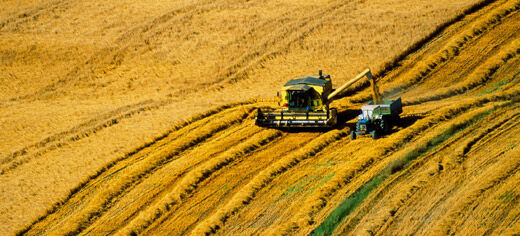Climate models can help predict some crop failures several months before harvest, according to a new study.
The research showed that in about one-third of global cropland, temperature and soil moisture has a strong relationship to the yield of wheat and rice at harvest. And, for those two key crops, the model could predict crop failures three months in advance for about 20 per cent of global cropland, according to the study, published on 21 July in the journal Nature Climate Change.
Professor Andy Challinor from the School of Earth and Environment at the University of Leeds, who co-authored the new research paper, said: “The impact of climate extremes – the kind of events that have a large impact on global production – is more predictable than smaller variations in climate, but even variations of 5 per cent in yield were correctly simulated in the study for many parts of the globe.”
In the study, an international team of scientists created and tested a new crop model, incorporating temperature and precipitation forecasts and satellite observations from 1983 to 2006. They then examined how well the data predicted the crop yield or crop failure that actually occurred at the end of each season.
“You can estimate ultimate yields according to the climatic condition several months before,” said Dr Molly Brown from NASA’s Goddard Flight Center, a co-author of the research. “From the spring conditions, the pre-existing conditions, the pattern is set.”
The team studied four crops – corn, soybeans, wheat and rice – but the model proved most useful for wheat and rice. Crop failures in regions of some major wheat and rice exporters, such as Australia and Uruguay, could be predicted several months in advance, according to the study.
The research could encourage communities and governments to invest in the infrastructure needed to take advantage of favourable years.
For example, if satellite data and climate models forecast a good season for rice before seeds are even planted, farmers or communities could get loans to invest in technologies to take advantage of the good weather, while insurers could keep insurance premiums low.
The full paper: Toshichika Iizumi et al, Prediction of seasonal climate-induced variations in global food production Nature Climate Change (2013) is available to download
Further information
Professor Andy Challinor is available for interview. Please contact Sarah Reed, Press Officer, University of Leeds, on 0113 34 34196 or email
s.j.reed@leeds.ac.uk
